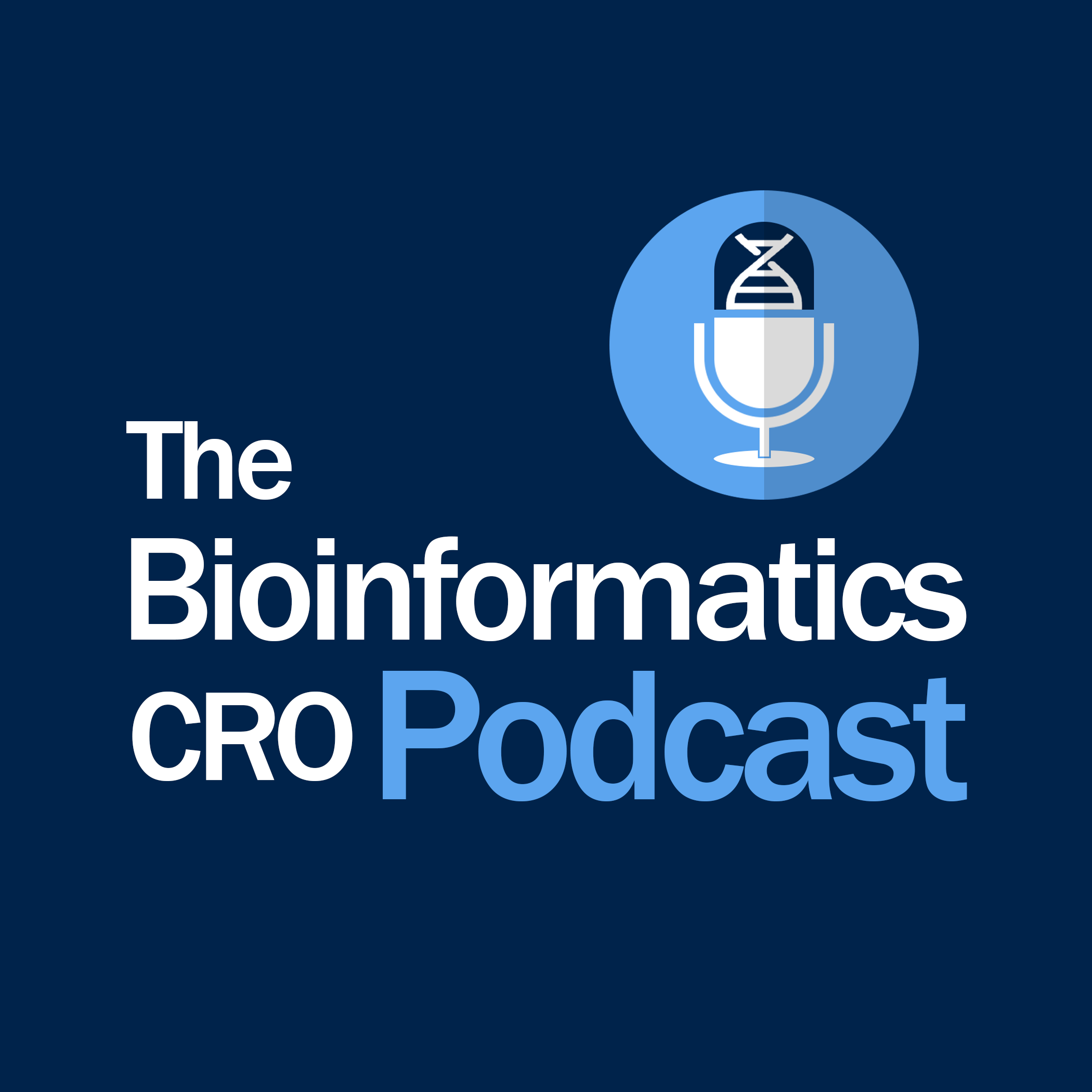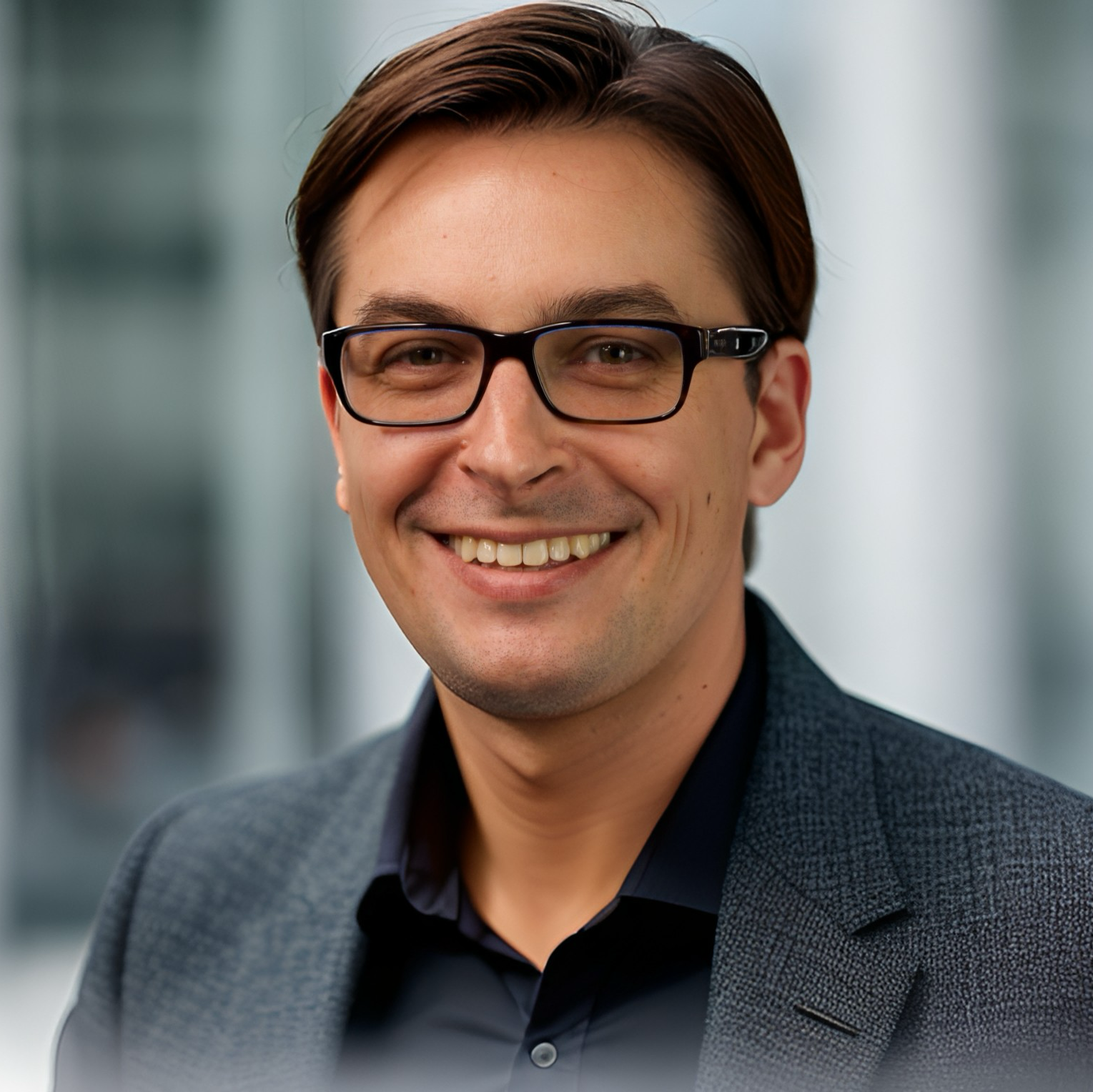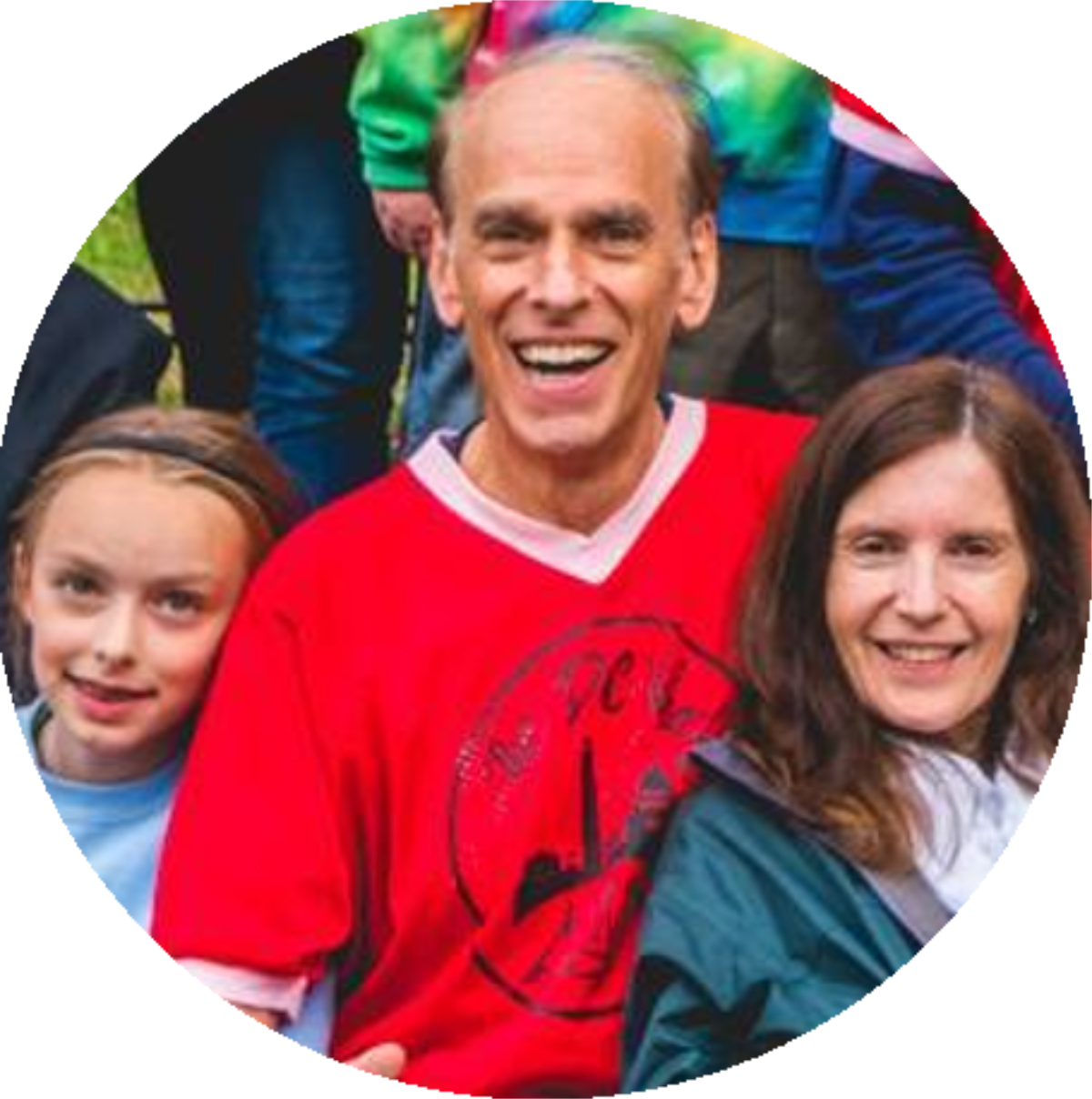Transcript of Episode 60: Max Marchione
Disclaimer: Transcripts may contain errors.
[Grant Belgard]: Welcome to the Bioinformatics CRO Podcast. I’m your host, Grant Belgard, and joining me today is Max Marchione, a 24-year-old Australian entrepreneur who’s the co-founder and president of Superpower, a San Francisco-based health tech startup. Superpower is building what it calls the world’s first health super app, aiming to prevent disease and enhance human capabilities through proactive, personalized health care. In essence, the company offers a membership-based digital longevity clinic that helps people live longer, healthier lives. Max, welcome to the show.
[Max Marchione]: Excited to be here. Thanks, Grant.
[Grant Belgard]: So, your path is pretty unconventional, from law school in Australia to dropping out and diving into health tech. Can you walk us through that journey? And what pulled you from law into the world of biotech and startups?
[Max Marchione]: Yeah, good question. It seems unconventional, but around three years ago, I was sitting there thinking to myself, what do I want to spend the next 20, 30, 40, 50 years of my life on? And at the time, I had just left my job at Goldman Sachs, and I was running two small companies. One, my brother’s now the CEO of, he does a way better job than I ever did, and the other, a friend of mine runs. And I was sitting there thinking, what do I want to spend the next 30 to 50 years on? And three things really had to be true. One is, whatever I worked with had to be deeply personally meaningful. It had to be something I was really obsessed over. And health was one of the few things that I would spend my weekends — my weekends obsessing over, my spare time obsessing over.
And that really started after going through a 10-year period of misdiagnosis. It would take me three hours to get to sleep every night. I had chronic headaches, chronic sinusitis. I saw over a dozen doctors, had surgery, was told to medicate for life. No one knew it was wrong with me. No doctor could get to the bottom of it. And when that happens to you, you start taking health into your own hands. That’s what I remember in like 2015, 16. 16, wearing a big fat [aura] ring. And all my friends at high school would bully me because tracking your sleep back then was not something you did. Or a year or two later, a continuous glucose monitor. Same story. People thought I was slightly psychopathic, putting a little microneedle in my arm.
But over that period of trying to solve my own health problems, I became a huge health geek, right? And it was something I was really obsessed of. I’d go to doctors and be like, I swear I’ve read more papers than you on this topic. And I ended up getting to the bottom of what was going on by finding something I call a 10X. A 10X doctor, like a really great doctor. The kind of doctor Jeff Bezos might have. And it made me realize there’s a huge gap between that model of care and what everyone else has. And there’s a gap between the best of healthcare and what most people have. And for as long as that gap exists, someone or some company has to come along and close the gap. So health was deeply personally meaningful.
I mean, thinking about it for a very long time, I didn’t really know what to do in the space, but I was really obsessed with it. The other thing that had to be true is I was thinking about what matters to the world, right? What matters to the world. There are a few problems on this earth that genuinely matter. And health is certainly one of them. And then the final thing is, if I’m going to be doing it for 30, 40, 50 years, the company has to have the potential to be at least a $100 billion company. I’m not saying we’ll get there. There’s a lot of things that can get in the way, but that means that we’re actually working on something that is of sufficient scale to actually matter in the world. So I was debating lots of different ideas. One was building a new city.
One was building a new healthcare system. And I decided building a new healthcare system came first. And the US healthcare system, the system is larger and more broken than anywhere else. So three years ago, I moved to the US. I knew no one here. And I moved to San Francisco. And here I still am today.
[Grant Belgard]: What was the light bulb moment for Superpower? Was there a specific incident or conversation that made you say, I’m going to build a new healthcare system?
[Max Marchione]: Not really. So in August, 2020, 2022, I was really, really obsessed with this idea that AI would perform cognition or computation far more effectively than humans. In other words, every single person on earth would have an AI doctor. And I remember when I said that to people in 2020, 22 August, they laughed at me and they’re like, well, what is this not possible? Come on. What about, what about the art of medicine or the humans of medicine? A couple of months later, November the 30th of November, 2020, 2022 ChatGPT comes out. I’m like, see you guys. They’re like, no, no. What are you talking about? This thing’s like, it can hardly even, even write. This thing can’t do anything. And then around a year later, I’m like, okay, now this thing’s getting really good.
And it was around that time when Superpower started. And, uh, in the period between that I explored lots of different ideas, right? I had a belief around what I thought healthcare would look like, but very few people agreed. The inside had said, no quality is fine. What do you mean? Quality standards are fine. No one cares about prevention. Consumers will never pay for, for anything you want to create. There are all of these reasons to not do the thing. And I came full circle after going through this, this trough of disillusionment to be, to realize, hold on the very idea I started with, which is making the very best medicine that today costs a hundred thousand dollars accessible to everyone, making it cost a hundred dollars is actually the idea, which still really matters.
And AI is the enabling technology. So it was no single moment. It was instead this, this long period of ironically coming full circle to where I started.
[Grant Belgard]: Tell us about your co-founders. How, how did the team come together and what unique strengths do each of you bring?
[Max Marchione]: Yeah, totally. So I met, um, Jacob. In, uh, several years ago now, and we’re introduced under the auspice of “you’re the two most health obsessed people I know.” He’d recently, um, lost several organs in hospital and been through a whole health crisis himself, and we’re both running small venture capital funds at the time. So we, we, we would like share [deal flows], we’d invest together, we’d constantly jam and ideas together. And, uh, we both knew we were starting health companies, but we kept it a little hush, hush from each other. And, and then when we started revealing, we’re like, hold up, we’re building basically the same thing. Rather than competing with each other, what does it look like to actually join forces? So that’s what we did.
And then Kevin, uh, the, the third leg of the stool went through Launch House, which was one of the previous companies, kind of like a Y combinator that Jacob started. And, uh, several hundred or maybe even thousand founders went through, uh, Launch House. And Jacob said Kevin was the best engineer he’d ever met. And they, they became good friends through that period. So the three of us, the three of us joined, joined, um, joined forces. And here we are.
[Grant Belgard]: You spent a year in stealth mode, building Superpower before going public. What were you focused on during that time?
[Max Marchione]: I think that if you’re going to commit 30 plus years of your life to something, it makes sense to be pointed in the right direction. And I think that hype is transitory and momentum, if momentum’s low, it’s inertia and stays low. And if it’s high, it’s also inertia and stay stays on the up. And the implication is I actually think that it pays to think very deeply about what to work on iterate on lots of ideas before actually starting to put brand and marketing capital behind it. Because if you start putting brand and marketing capital behind everything, then when you actually do the actual thing, it’s all gone and you can’t actually use it. So that was a big reason for stealth mode. Um, people disagreed with it at the time. Um, why are you in stealth?
And, uh, I think in retrospect, I would, I would certainly do it again.
[Grant Belgard]: What early challenge, challenges, uh, or pivots did you have as you refined the concept?
[Max Marchione]: Uh, we started far more upmarket. So the, the initial belief was we’re trying to take a hundred thousand dollars concierge medicine and make that accessible to everyone at a far lower cost. Surely it makes sense to start with a hundred thousand dollars a year concierge medicine. And to slowly reduce costs and automate more. And that’s not really how it works because when you start having that much capital to play with, you end up making product decisions and engineering decisions and operations decisions and strategic decisions based on that, right. And you end up running essentially another services led company. And you’re competing with all of the other services led companies that charge very high prices.
And yes, there’s a small market that’s willing to pay and therefore it can be a fast path to revenue. But it means that you’re not, we’re not actually thinking sufficiently about scalability from day one. So the change we made was to actually do the opposite, which was to start at an attractive price point, $42 a month or $499 a year. And have a set of things included at that price point that we think are amazing and then just keep adding features, right? So rather than keeping the features the same and reducing the price instead, start with a very low price and keep adding features. And I think that’s a far more scalable way to build because it forces you to make the scale decisions right from the start.
[Grant Belgard]: Superpower’s mission is to move healthcare from reactive to proactive and practical terms. What does that mean for an individual? Can you give an example of how traditional healthcare might miss something that your approach might catch?
[Max Marchione]: So the cancer someone gets at 40 or 50 starts when they’re 20 or 30, the heart disease at 60 starts when someone’s 20 or 30, the Alzheimer’s at 70 starts at 20 to 30, maybe even earlier. Now the healthcare system today will only react one to two years before it actually happens, not 30 to 40 years before it happens. But I think we can and should intervene early. And we have the tools to understand how things that are presenting themselves very early to someone actually could result in something down the stream. For example, heart disease is a classic one. If all of someone’s parents and grandparents died of a heart attack, you’re probably going to die of a heart attack.
But if you use any sort of risk scoring algorithm, 10 year risk is what is used, it’s going to say your 10, if you’re 30 years old, it’s going to say your 10 year risk of a heart attack is very low. It’s so low. We’re going to do nothing about it now. We’re not going to. So I’m like, wait, hold up. I know that’s my 10 year risk, but my 30 year risk, I’m like going to die of a heart attack for almost certain. So why don’t we take preventative measures today? And we can actually start to test for someone’s lipid burden. We can test apolipoprotein B. We can test lipoprotein little a, which basically shows your genetic risk of heart disease. And we can take steps to reduce atherosclerosis early. We can reduce calcification of plaque in the arteries.
And we should do that early if that’s the most likely thing you’re going to die of. And it’s the number one cause of death in the United States. And that’s one example with heart disease, but that applies to everything. And we can see how being out of range in certain biomarkers correlates and likely has some causal effect to diseases downstream. A very high A1c, a sign for being diabetic or pre-diabetic, will increase your risk of all cause mortality, largely from the biggest killers. Having liver enzymes, which are highly elevated when you’re younger, will increase your risk of all cause mortality. And if we look at the way the system, it doesn’t respond. I remember I was 13 years old. My liver enzymes were just outside the normal range.
And every doctor said, it’s fine, it’s just outside the normal range, don’t worry about it. And what I found out several years later is the normal range is the 97.5th percentile. So at 13 years old, I was worse than 97.5% of the entire population. And I was told I was fine. Right? And that’s how the healthcare system is set up. Doctors don’t even know these ranges of percentiles. They’re just like, ah, it’s just the range. So unfortunately, it’s not just the doctor’s fault. They’re not even equipped with the information to know how to respond and behave.
[Grant Belgard]: So you’ve previously mentioned wanting to help people not just avoid disease, but actually enhance capabilities, almost like unlocking a superpower. So what does enhancing human capabilities look like in the context of health? You’re talking longevity, cognitive performance, athleticism. Where do you think the high leverage points are?
[Max Marchione]: So if we look at a sci-fi movie or read a sci-fi book, how often do they talk about, we’re preventing cancer and we’re preventing Alzheimer’s? You don’t hear it. Prevention, no one talks about prevention. And the implication is that in a post-deep biotech world, prevention becomes table stakes. And I do believe we’ll get to that world actually faster than many people think. In a world where prevention is table stakes, what does matter? Well, what you hear in these sci-fi novels and see in these films is that enhancing human performance, enhancing human biology starts to matter. Allowing people to lose weight, allowing people to be smarter, allowing people to live longer, allowing people to be more athletic, allowing people to be more focused and get more done in the day.
These are things which health actually facilitates. Today, it facilitates it through simple things. Even lifestyle behaviors can modify and enhance human capability. Soon, we’re going to see health enhance human capability through more complex modifications. One example or harbinger of that is GLP-1s. They’re good for some reasons, they’re bad for others. But what they’re a harbinger of is healthcare being used for human enhancement. A lot of the people using GLP-1s are actually reasonably slim. They just want to lose a few extra pounds and they’ll turn to pharmacology to do that. And I think that we’re going to see more and more, increasingly healthcare used in this way. For things beyond just… Just I want to lose a few pounds.
And that is what I think of as healthcare for human enhancement. So I say, I often describe Superpower as a healthcare system to prevent disease. Hopefully it becomes table stakes. Hopefully there are dozens of companies supporting that and enhance human capability, which I think is the next frontier for humanity and a biological imperative. Like we need to evolve, particularly in the lights of AGI.
[Grant Belgard]: So a hundred million people rescued from reactive care is a bold goal. How do you begin to approach a number that large? Do you focus on certain demographics first and expand from there? Or kind of what’s your thinking about that?
[Max Marchione]: I think that fundamentally we need to provide something which makes sense for the majority of people to own. And one example of a membership that I think it makes sense for the majority of people to own is a membership, an annual health membership that includes 2 blood tests, there’s a really comprehensive, let’s say, 40 to 70 biomarkers. All of your health data are in one place, right? Wearables, data from electronic or medical records, data from surveys, the ability to interface with that health data via an AI, the ability to chat with a medical team, human medical team that has access to all of that data and is supported by AI, the ability to get prescriptions and referrals and diagnoses from that medical team. And all of this for free.
That’s a pretty cool free health membership to own. And that is entirely possible to do for free. And I think the second a membership like that is free, why wouldn’t 100 million people want to own something like that just in America alone? My sense is they would. And that’s what’s required. How do we deliver massive amounts of value for as close to free or free?
[Grant Belgard]: Let’s walk through the user experience. Say I sign up for Superpower today. What happens next? What does the first month look like for a member?
[Max Marchione]: So today we’re doing three things. One is collecting as much data on someone as possible. And that starts with sending nurses to your home and they’ll collect over a hundred plus blood biomarkers that’s around five times more than an annual physical that will include hormones, toxins, inflammation, metabolism, cardiovascular risk, liver health, and a handful of others. Um, and we do that twice a year. We’ll also in this part number one of collecting data integrate with the EMRs and we’ll pull in all of your past medical records and we’ll also integrate wearables and we’ll give you an onboarding survey.
This, all of this data people love because they’re like, oh, well, I’ve never seen these biomarker before. This is really interesting. Oh, sure. I didn’t realize this was wrong. Now I want to start taking action. But the other reason this data is really important is it defines full context, which is essential in a world where AI is delivering care rather than humans. Very hard for a doctor to process 4,000 pages. The medical records, plus all of this data, very easy for an AI to do it. So part number two is how do we connect the dots across all of this data? We’re inspired by concierge medicine here. If you’re Jeff Bezos and you have a concierge doctor, you probably have a team of five and they spend hours and hours and hours going through all of your data and connecting the dots to get to the root of what is going on and tell you exactly what you should do about it.
That’s what we do largely through AI supported by humans in the loop. So part number two is we’ll say, now that we know everything about you. Here’s exactly what you as an individual should do. Not cookie cutter advice, but here’s what you as an individual should do. And then part number three is now that we’ve told you what to do, how do we actually help you do it? Right? The thing I kind of hated about healthcare when I went through my journey is you leave the doctor’s office and you’re always left to your own devices. We say, no, let’s actually help you do it. So anything you need, we’ll try to bring into one place, follow up diagnostics accessible in one place, uh, supplements accessible in one place. Only our favorite ones, all 20% cheaper than Amazon for members, right?
You shouldn’t have to leave the ecosystem. Uh, pharmaceuticals in one place, ones that we think that we think are highly effective, 20% cheaper than Hims. If you need to message your medical team and you have a question, you can pull out your phone and you can send them an SMS. There’s three people on that team. So the idea is how do we make it really easy for someone to actually follow the protocol we set up by bringing as much as possible into one place, making it cheaper than accessing that in a very fragmented fashion by hunting around the healthcare system. So today we do three things. Test your whole body aggregate data. Connect the dots across that data and then make it really easy to take action. And that is a $42 a month, um, $499 a year membership today.
[Grant Belgard]: So how do you, uh, distill all that information, uh, into, into report to explain it to, to the user?
[Max Marchione]: So we have a report schema and template that we have created, and that is just blank. We’ve built an AI model in house that ingest all of the data. We will ingest our clinical canon, which is our, like basically codified doctors, brains have codified the brains of many of the best doctors and it will take the database of what we know about the patient, the database of what we know about medicine, compute between the two and have an output into the report. And it will generate the first version of the report. And then your doctor will get that report and go through it, review it, edit it. A lot of the time, the doctor will be like, this is so much better than anything I could have created, right? That’s like the, that’s the level of which the AI is performing. At, um, at the moment.
[Grant Belgard]: And how do the physicians then interact with what they get out of the, out of the AI? I guess, kind of, I’m wondering, is it, uh, are they largely getting an, an LLM output or is there, you know, some, uh, statistical kind of work feeding into that as well?
[Max Marchione]: So they get a text output in the format of a report and they have the ability to edit the text within the report. And there are several structured data blocks they can bring into the report. For example, they might want to pull in a biomarker, which gets visualized in the report. They might want to pull in a recommendation, a supplement or a pharmaceutical or a followup diagnostic test, which then then becomes, um, able to be purchased at, at the bottom of the report. But they’re fundamentally dealing with this text report, which is represented to the clinician, the same way as it’s represented to the patient. And they can modify that directly.
[Grant Belgard]: So if someone, uh, goes through the service and, uh, there are a lot of things wrong with them, right? Um, uh, maybe there are lots of, uh, recommended actions for them to take. Uh, how do you prioritize that? Um, so they aren’t overwhelmed by a deluge of 50 things to do.
[Max Marchione]: Yeah. Uh, a lot of that is how we build the AI, which is giving examples of what we think good looks like, how we think medicine should be practiced, how we step through a series of actions, uh, one at a time versus immediately. We take in inputs as well. Like when someone joins the survey, we’ll ask them a question like, um, like how — I forgot the exact framing — but it says like, how much do you like to spend? How many supplements do you like to take? Are you open to pharmaceuticals or just supplements or just lifestyle? How intensive is your regime? How much effort do you want to put in? And all of these are also inputs into understanding what to recommend.
And again, this is the beauty of a world of technological computation, which is that it actually has all of this context in mind. Whereas in a five to 10 minute consult with your PCP, like it’s hard for them to know all of those. Uh, data points about you. So we, most of the time, we’re not saying do everything at once. We’ll say looking at the set of all of the monitored issues. So we’ll say here’s 15 monitored issues, looking at all of these monitored issues. We think there are these underlying drivers of all of them. So we’re going to start by targeting these underlying drivers.
Maybe what we’re going to do is we’re going to fix hormonal balance and we’re going to fix metabolism and let’s just start there and we can take some simple, we can follow some simple interventions to do that and then we’ll retest and we’ll see the effect. And then we can do just more things, um, get downstream.
[Grant Belgard]: That’s interesting. So, um, adherence is a big issue in preventative health and you mentioned, uh, ways you try to, to assist with that. So, so how do you tackle the behavior change aspect?
[Max Marchione]: My sense is that before even getting to behavior change, one of the important things is empowering people with information because information does drive action. I, uh, there’s a hundred million Americans who are pre-diabetic and 80% of them did not know it. I found out two years ago, I was pre-diabetic, right? I had no idea. I’m like, I’m slim. I seem healthy. I was pre-diabetic. And the second I found that out, I’m like, shit. Okay. I’m fixing it. Like, how do they, like information alone has sparked the desire for me to take action. And we see that a lot with our members. Typically they’re actually lacking information and when they can see viscerally what’s wrong with them, they want to take action from their part of driving behavior changes, making it as low cost as possible and as frictionless as possible.
The reality is low friction and low cost drives action. So it should be a single button to get whatever you need. If you want to send a text message to your concierge, they can get you whatever you need. You shouldn’t have to think, how do we reduce the friction to the maximum amount possible? Same with costs, right? We care a lot about everything within the ecosystem and cheaper than the care you would get outside of the ecosystem. Because. Reducing the cost of action, um, or of an intervention will also drive up behavior from there. We get into the actual behavior change stuff. Right.
But I think that so many people would jump straight to the actual behavior change stuff before actually being like, hold up, let’s just improve quality and data and information, reduce costs and reduce friction. Like Uber Eats drives behavior change is like reduce friction, kind of reduce costs and improve quality. If I look at the actual behavior change stuff. I think we still have a, a long way to go, but part of it is via the concierge, which can nudge, which can outreach, which can hold you accountable. And the AI is really good in this world because what the AI does is it drafts or, drafts messages and it puts them in a backlog and the clinicians review it and say, do I want this sent to my patient or do I not? That’s something the AI can do. Cause it has, it can do that infinitely.
And now clinicians just approve or disapprove so much easier than saying to a doctor, here’s your patient panel of a thousand. Think about when to message all of them. Well, it was just a very. Hard thing to do in a, in a human paradigm, whereas the AI can do it in a very personalized way with human in the loop review. So that, that kind of nudging is one example of how we then get to behavior change. I don’t think we’ve solved behavior change yet, but I think there’s this, uh, uh, if we solve behavior change, we’re in a really interesting place.
[Grant Belgard]: So since this podcast is for, you know, uh, comp bio folks, uh, I have to ask, how are you managing and analyzing the sea of data each user provides? Um, do you use machine learning models trained on an internal or external data sets? Both, for example, uh, are you able to predict, uh, uh, people’s individualized risk of a condition through the biomarker patterns? I mean, I, I guess at this point you’re, you’re still quite new, but I would think over time you’ll be gathering longitudinal data.
[Max Marchione]: So I’ll start with what’s the data we gather, how do we process it and then how can we predict risk and what can we actually do? Clinically, there are three main types of data we’re gathering and we’re maybe the, we’re one of the only companies in earth that has all three simultaneously. One is multimodal multi-omic data, right? There are very few companies that will test blood biomarkers, genomics, microbiome toxins, all sorts of imaging tests, and bring that into one place. So we have multimodal multi-omic data. And if we do a good job for our members, they stick around with us and they keep testing through us.
The second thing is we have a longitudinal clinical data, partially because we aggregate medical records, but partially because we actually take care of patients and do it in an ecosystem that, that is data rich and data forward and tech forward. So we don’t just get the survey data at the point in time where they collect or some sort of, where we collect some sort of omic. We also see what’s happening to the patient over time. We see how they evolve and that’s really valuable, right? 23 and me just had survey data point in time at the point of collection. We actually have lots of. Points with a single patient, single, uh, longitudinally. So the second thing is longitudinal clinical data. And the third thing is continuous wearable data by integrating with wearables. We also have that as an input.
And I think wearables are still nascent in terms of being able to predict risk and link what’s happening in wearables to clinical data, to omic data. But I think when we actually build a rich enough data set, we enter a world where the connections are possible. Today, we don’t do any, any clinical risk scoring, like any clinical risk scoring that, that, that is. Is approved that could be used in a hospital to, to modify really complex care. Any risk scoring that we rely on is something that already exists or as guidance and advice to our practitioners, rather than an actual clinical risk score that is meant to modify a treatment plan. My hope is that we get there. I think we’re collecting a really interesting data set.
I don’t think I fully understand the value of, of, of the data set, um, because I’m not as deep into the bioinformatics world as some of your listeners, but I’m optimistic that I will understand the value of that data set. In the, in the next, um, one, one to two years, and that puts us in an interesting place.
[Grant Belgard]: Yeah. I’m wondering if, uh, you’ve thought about, you know, using the data set for, uh, for research purposes, right? Because if you have genomic data along with all the rest of it, uh, there’s, there are really a lot of questions you could ask about, uh, causality and so on that are, that are pretty, um, fundamental questions to require a very large, uh, number of. Of, of patients, um, with, you know, genetic data, then it becomes especially powerful when you, uh, follow large multi modal panels over time.
[Max Marchione]: Uh, yeah, totally. Like Regeneron just bought 23 and me for $256 million. No one saw that coming. Word on the street is that that company would sell for $30 to $60, not $250 million. And the data there was not that great, right? There were 15 million pople with a small number of like, like a little bit of SNP data in the multi-array test that LabCorp was performing, and there was some survey data, but simple questions were asked at a point in time, and that was worth 250 million to someone, wild. So I, I am optimistic that in the long run, we’re able to actually, uh, discover things by having these three types of data and discover things that we don’t actually understand today.
And I think the other thing is just, is the, the richness of the, the longitudinal clinical data. I’ll give one kind of trivial example, but I think it’s kind of interesting because it’s slightly esoteric. When I had pre-diabetes two years ago, I couldn’t get my A1C down, nothing. I tried, I stopped eating sugar. I was exercising a lot. I was slim. I was healthy. Nothing to get my A1C down. Like what the hell is going on? And one doctor said, oh, I’ve heard mega dosing thiamine, vitamin B1, uh, helped. And they gave the me, the mechanistic reasoning that I do not remember. And they said, look, a normal dose was five milligrams, but take 400 milligrams. And I did then my A1C came down, right?
If you look out in the world for clinical studies on thiamine being used to reduce A1C, they don’t really exist. If you look at Superpower, we saw Max bought thiamine and that was new. And after he bought thiamine, we saw that A1C started coming down because we had the, the marketplaces. Like, interconnected data points as well. And that’s a trivial example. I think I’m sure people will nitpick that and tell me why it’s imperfect, but the, the gist of what I’m getting at is that we do enter a world where having this much data does allow us to discover new things.
[Grant Belgard]: So how do you ensure Superpower’s recommendations stay up to date, both as your own data set grows and evolves, but also as new, new research continually comes out, right? It’s a bit difficult to stay on top of everything, right, these days.
[Max Marchione]: Yeah. So we don’t build our own foundation model. Um, we use the existing ones. The magical thing about using these existing ones is that hundreds of billions of dollars are being invested into them. And they’re very good at aggregating research and they’re very good at staying on top of research and the amount of funding going into them and the ability for them to just aggregate talent continues going up. So my sense is that is a reasonably solved problem because foundation models are the magical things they are. The thing which is not necessarily a solved problem is aggregating what I call latent knowledge, which is knowledge that’s in the brains of doctors that is not on the internet. And there’s a lot of this, the thiamine example is like one example of that.
So to do that, what we, what we do is we work with many of the best doctors around the world and they tend to be in their sixties, seventies, eighties. And we say to them, look, you’re making like tens of millions a year in your concierge practice and you should keep doing that, right? You see 500 patients and they pay you a lot. And then you should keep doing that. But if you want, one thing we can do is actually immortalize your brain and we can codify it and make it something that everyone has access to. And many of them are like, holy shit, I’ve always wanted to do this. I, cause they will have like really are proud that they deliver high quality medicine, but they’ve never been able to scale it. They’re like, I’ve always wanted to do this. Let me tell you of everything I know.
And now we start to build out a database of what I call latent knowledge, um, which does not exist on the internet and LLMs do not have access to.
[Grant Belgard]: So here’s, uh, here’s a bit; healthcare is a tough industry for startups. It’s heavily regulated. There’s a need for clinical evidence. Trust is a huge factor. Uh, what have been the biggest challenges you faced, uh, building Superpower in this space?
[Max Marchione]: We tried to do too much too early with not enough capital. And I think that we were naive to how hard things are. It’s so hard to do anything well. So the implication is just do fewer things and do them really well. And we were naive to how costly healthcare is, right? It’s not the same as building software. Healthcare is a complex, operational, legal, clinical problem alongside the usual product engineering design and go to market challenges, right? So it’s basically doubled the complexity. Um, so I think that we just tried to do too much too early. And that was one of the bigger challenges, um, that, that we faced.
[Grant Belgard]: And, uh, you mentioned in an interview that early on a challenge was getting absolute clarity on what to build. And then later it was all about speed. Uh, could you elaborate on that? Uh, what helped you find — what helped you find clarity in your product, uh, and how are you instilling speed and urgency in the team now that you’re scaling?
[Max Marchione]: Yeah. So I think there’s so many people try to speed up before they actually know what to focus on. And it’s kind of like speeding up at running sideways doesn’t actually do anything. So I think that the rate limiting factor in the early days is typically clarity rather than speed or resourcing or who’s on your team or capital. And the implication is that you actually need to move somewhat slow in the early days. With a small group of people with a limited amount of capital, because they’re the set of factors that can increase clarity, right? And when you have clarity, you can start moving quickly. If I look at the way to get clarity, it’s doing those things. It’s moving slowly. It’s thinking deeply. It’s chatting with lots of people. It’s chatting with customers.
It’s testing different things with having hypotheses. It’s seeing how the market responds. It’s thinking deeply. It’s definitely taking action as well. You can’t get the clarity just by thinking, um, often the rate of learning through action is faster than the rate of learning through like twiddling your thumbs and scratching your beard. And those are the things that I think result in clarity. Once you have clarity, once we have clarity, then we can move quickly. Then we can raise more money, hire more people, work faster because we know the direction in which we’re headed.
[Grant Belgard]: And, uh, Superpower’s offering something quite comprehensive for $499 a year, which sounds like a lot of service for the price. So how do you make the unit economics work? Uh, is the idea as you get more data and automation, the cost to serve each customer stays low?
[Max Marchione]: Uh, no, our unit economics are positive today. And we’ve done that through good partnerships, good technology, good AI, good operations, a really, really amazing team. I’m fortunate to work alongside. So unit economics are quite strong today.
[Grant Belgard]: Speaking of your team, uh, you’ve, you’ve onboarded a number of ex-founders, uh, as employees and attracted some big name investors at a young age. Uh, what do you — What do you think convinced them to buy into your vision early on?
[Max Marchione]: I think one is the mission, the importance of what we’re working on. Two is the size of what we’re working on. Right? Like everyone knows that if we succeed, we are one of the more important companies in earth. And that’s very energizing for people. Um, a lot of the people we work with could found the company. Right? So that’s the opportunity cost to them. I think three is the way in which we are thinking about things. I think a lot of the more sophisticated founder types we hire appreciate how we think through strategy, products, go to market, marketing brand. I think four is the existing brand foundations, which are resonant, distinctive, draw people in, give people the sense that we’re going to be a serious brand in the space. So there’s some of the things. Yeah.
So there’s some of the things. And then probably the final one is the company is doing well. I think that when you have momentum, it begets momentum. We have capital, we have, uh, customers and many more coming in. We have a strong foundational team and existing team. Um, and it’s become as a result, more easy to hire or easier over time to hire really great people, right? There’s like a little bit of a J curve initially, and then you come up the J curve and it gets exponentially easier with time.
[Grant Belgard]: So paint us a picture. If Superpower succeeds wildly, how does healthcare 10 years from now look different? Uh, do we all have personalized health dashboards and routine AI health checkups? Uh, what changes for the average person?
[Max Marchione]: I think about this a lot because my belief is that the structure of the healthcare industry is going to fundamentally change. And I think that one of the key changes is that the first place people turn when they have a health question is going to be not to Google, not to ChatGPT, not to their primary care doctor, but to an AI. That will be the first place I believe people will turn. And this AI will know everything about you. Everything. It will know everything about medicine. And it’ll be able to take action, right? It will be able to order, diagnose, prescribe, do whatever you want. And it will be so good that you don’t even question whether the AI is worth trusting.
When you’re in an airplane today, you don’t, you trust the autopilot. If the pilot said, so I’m going to fly without any autopilot today. You’d be like, oh shit. No, you want that autopilot on, right? And I think we get to the world where, where AI is, is quite similar where it’s like, no, I really want my AI. I don’t want to be going at this alone or just with. And just to the doctor without AI. That’s like a pilot flying a, a 737 with zero autopilot and zero technology. Like, no, get me out of there. So I think we have people going to an algorithm as the first part of care. The algorithm knows everything about them and it tells them exactly what to do. And it is so good that we have to trust it and increasingly blindly follow it.
I actually think in, in a little bit longer from now, these things get so good that we don’t have a choice, but to follow it. Right. Because it knows so much more than us. And the only thing we know is that it knows so much more than us. So I think that’s part of how healthcare will look. I also suspect that, um, I, I, for the past 10 years have been very anti-pharma, anti-pharmacology. I’ve actually changed my mind. I suspect that over the next 10 years, we’re going to see many blockbuster drugs that enhance human capabilities and prevent disease. So I, so I think that pharmacology will play a very large role in defining what the future of healthcare looks like because of the rate of change in biotechnology.
And there are several of these molecules or compounds already, peptides being one emergent category, right? Um, still frontier, still taboo, potentially some problems with them, but also able to drive really powerful outcomes for those who use them. And I think, again, they’re one example of many more, um, versions of, of frontier blockbuster, uh, pharmaceutical interventions that, um, are going to emerge in the coming years. So AI, uh, and, and, uh, biotech, I think will define, uh, what the future of medicine looks like.
[Grant Belgard]: So looking at, uh, adjacent fields, do you think this preventative data-driven model could integrate with drug development or clinical trials? For example, you know, how would a, a pharma company partnership look, uh, with, with Super, uh, with Superpower?
[Max Marchione]: I don’t know. I don’t understand the pharma industry well enough yet. I feel like with many of these things, we have to do the set of things, which is like most sensible and reasonable for our business today, and there are all sorts of emergent properties as a result, and every three months that goes by, I’m like, oh, okay, cool. Here’s another interesting emergent property that I didn’t realize three months ago. If I was to speculate, first, we would never share data with anyone without any of our members consent, assuming that our members consent, similar to how members consented to 23 and Me sharing data with pharma to progress human health, assuming our members consent, 85% of 23 and Me members consented. Let’s say 80% of our members consent.
Um, we could do similar, obviously anonymized, de-identified, not being, not possible to be used in any way that can harm people. Um, I think that pharma companies will like to see the mapping between clinical data and omic data. I don’t know the exact way in which they use that, but I do know something that they do like, again, looking at 23 and Me as a case study. There is a world where some like peptides get legalized in the next two years. And just as GLP-1s. Well, like Ozempic was, and Wegovy, were like evolutions on the GOP ones that have existed for 20 years. There might be evolutions on the other peptides, which had been around for 20 years that are patented by big pharma. And there’s a world where we have a data set that shows which ones are efficacious and what doses, et cetera.
I don’t know, again, speculating the short of it is there’ll be a whole lot of emergent use cases and I’m sure we’ll discover them in months or years from now.
[Grant Belgard]: So finally, uh, what’s next for you? And Superpower in, in the coming year that you’re most excited about, or is there any milestone we should watch for? Um, and, uh, where can listeners go to learn more or sign up if they’re interested?
[Max Marchione]: So we’re removing our wait list, um, which is exciting. There’s 200,000 people on it today, and we’re going to be doing everything a little bit more publicly, building in public, sharing more about what we’re up to, uh, and, and growing, which is exciting. And at the same time, we’re building out a lot of additional product features. There’s a whole long list of them. Today, the, the concierge doesn’t handle full stack primary care. We want to be able to handle way more of the stack. We want to be the first place people turn for healthcare. And I don’t think we’re quite there today. Today, we’re still better at testing rather than the full stack of care.
Um, and to build into full stack care without increasing costs is as much, it’s a clinical and operational problem, but it’s primarily a technological problem in the way we address it. So I’m quite excited for that as well.
[Grant Belgard]: Well, I think we’re, our time’s come to an end, but thank you so much for coming on the show. It’s, it’s, it’s been a really interesting conversation.
[Max Marchione]: Yeah. Thank you, Grant. Enjoyed the conversation.












